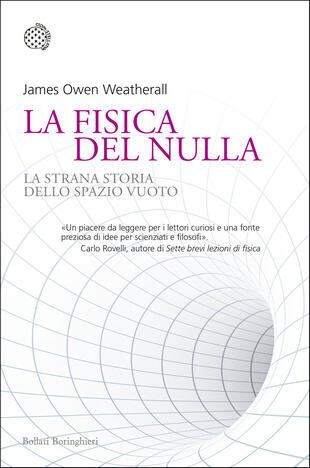

La fisica del nulla
-
Tradotto da: Andrea Migliori
Tutti i formati dell'opera
Acquistalo
Sinossi
«Perché esiste qualcosa anziché il nulla?» Sollevata a più riprese dai filosofi nel corso della storia, questa domanda assume un valore del tutto inaspettato nelle mani di un fisico. Per Newton, per esempio, era necessario che esistesse uno «spazio», un palcoscenico in cui potesse svolgersi il «dramma» della materia e delle sue leggi: questo spazio era teoricamente «vuoto» e veniva occupato dai corpi fisici, che vi subivano «forze» precise. Attorno a questo nacque un lungo e famoso contenzioso con Leibniz, e i primi problemi – filosofici e fisici – sul concetto di spazio.
Con Maxwell le cose si fecero ancora più problematiche, dal momento che la nascita del campo elettromagnetico riempiva lo spazio «vuoto» di «qualcosa» la cui natura non era chiara, e peggiorarono radicalmente con Einstein e il suo spazio-tempo curvo, che per potersi curvare doveva pur essere qualcosa. Il colpo di grazia all’idea di vuoto lo diede infine la meccanica quantistica. Per quanto strano possa sembrare, insomma, il «nulla» è «qualcosa», come mostra questo libro splendido e coinvolgente nel rispondere dal punto di vista della fisica alla più profonda di tutte le questioni: la distinzione tra essere e non-essere, tra ciò che esiste e il nulla.
- ISBN: 883397538X
- Casa Editrice: Bollati Boringhieri
- Pagine: 186
- Data di uscita: 20-04-2017

